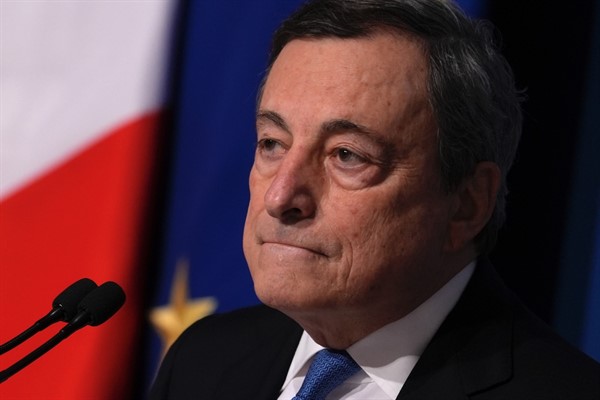Two stories out of Italy have attracted international attention this week: The country’s chaotic election of its president, and a controversial video conference between Russian President Vladimir Putin and Italian business leaders. Both highlighted the ways in which Italy, which could play an important role in the European Union on the standoff between the West and Russia over Ukraine, has instead remained a silent bystander.
This silence is particularly notable given the expectations surrounding Italian Prime Minister Mario Draghi: An economic mastermind credited with saving the euro, Draghi’s year in office has featured a strongly pro-EU platform and a tougher posture toward both Russia and China. In fact, as tensions began to rise again at the border between Russia and Ukraine, Italy had a front-row seat in high-level talks between the U.S. and Europe through the QUINT format, comprising the U.S., France, Germany, the U.K. and Italy. Draghi has even been included in video calls, as well as briefings preceding and following discussions between U.S. President Joe Biden and Russian President Vladimir Putin.
Given his political stature in Europe, as well as Italy’s ties with Russia, one would have expected Draghi to play a bigger role in diplomacy over the crisis, similar to that currently being played by the leaders of other European countries. For example, leaders from France and Germany have both pursued dialogue with Russia and Ukraine, bilaterally and through the so-called Normandy Format, in coordination with the United States. And EU foreign policy chief Joseph Borrell has openly advocated for the EU to take part in negotiations between the U.S. and Russia, framing the crisis as a European security concern.

